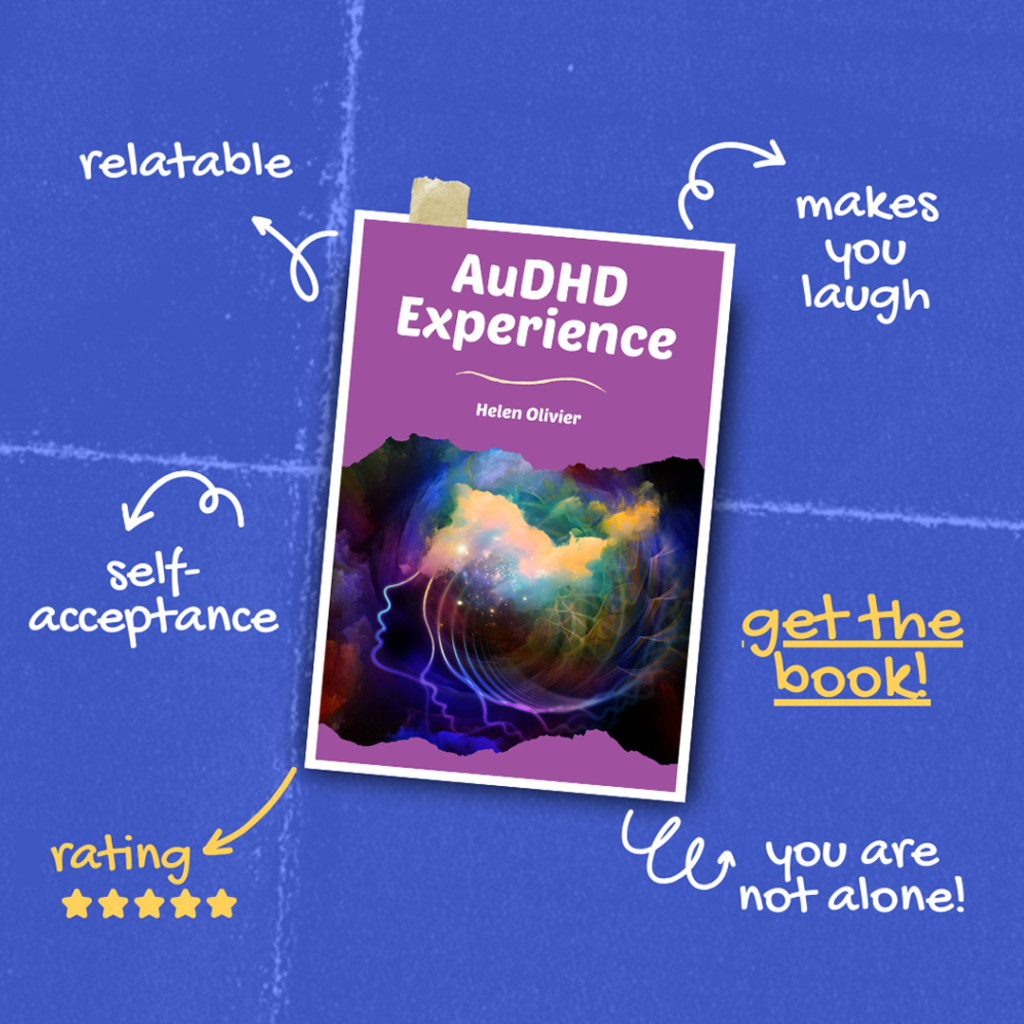A while ago, I wrote a blog post titled What I Want My Mum to Know About Autism, and it ended up being one of my most-read articles. In it, I tried to give voice to my struggles and my needs, tried to explain the differences. From the beginning, I intended to do something similar for ADHD. I get ADHD from my mother’s side, and she doesn’t understand my autistic side, while the autism I inherited from my dad’s side, and he needs a bit of help with understanding and explaining ADHD. This blog post is not only for my parents, but for every reader who needs the words to explain themselves to their loved ones. You can borrow this blog post to help your family and friends understand and explain ADHD a bit better. So, here goes:
I have big emotions
I feel things more than neurotypical people do, and I’m not always able to control my reactions. I may seem child-like in how I’m feeling everything too much. It’s a disadvantage, but it also gives my world more color and makes it interesting.
I’m often late, and it’s not my fault
When I run late, it’s not because I don’t respect your time. I have time blindness. That means I don’t perceive the passing of the time like neurotypical people do. An hour can seem like a minute to me, and vice versa. I have trouble estimating how much time a task will take. Even when I wake up earlier, I lose track of time. and run late again. I need to externalize time and create strategies in order to manage my time better, and it’s not easy for me. Explaining ADHD to someone includes helping them understand that lateness is not disrespect — it’s a symptom.
I often decide impulsively
I think of something and then I immediately do it, without considering if it’s actually a good idea. This may land me in trouble sometimes. I may make irresponsible financial decisions or say yes to things I would say no to if I thought them through. I may hit send on an email before reading it again, or decide to “just rearrange the living room” at 10 pm and end up with an explosion of all my stuff because I have run out of motivation. And then there are the exotic vacations booked when I couldn’t sleep at night. (Well, at least I get a vacation out of that ohne, so it may not be all bad – even if I need to live on rice and beans for days to be able to afford it.)
I have a problem starting tasks
Even when I really want to do something, sometimes I end up stuck on the couch, scrolling Facebook, unable to get up. This doesn’t mean I’m lazy. It’s because of executive dysfunction – a condition related to autism and ADHD that makes initiating tasks difficult, among other things. Yelling at me or guilting me doesn’t help – I’m already feeling a lot of shame for this. Instead, a kind approach can be helpful. Offer body doubling – sometimes just being present when I need to work on a task makes it easier for me to do.
I often start a task, get distracted, and only remember it hours (or days) later
I go to put something in the fridge, get distracted halfway by the trash that needs to be taken out, and in the end, whatever I was carrying to the fridge doesn’t get to its destination. That’s why I’m routinely doing ten different things at once. This often means that nothing gets really done. If you need me to do something, I need frequent reminders.
I work best under last-minute pressure, even though it stresses me out
I procrastinate a lot because starting tasks is difficult with executive dysfunction. I often get to something only when it needs to be done yesterday. I use adrenaline in the place of dopamine and finish things under pressure. Which kind of works, but it creates a lot of stress for me. It’s hard to learn to manage my tasks without the last-minute stress.
My mind is constantly chattering
There is a constant stream of consciousness running in my mind. It can be distracting and exhausting sometimes. This is also why, when you talk to me about the weather, I may blurt out something about wasps a few moments later, because hot sunny days lead to more picnics outside, and that reminded me of the time a wasp landed in my drink, which reminded me of them.
I lose track of conversations because my mind wanders
When I don’t know what you have been talking about, it isn’t because I haven’t been trying to pay attention. But my constant stream of consciousness can make it hard to focus on one topic, because it jumps from one thing to another. Please be patient with me and repeat important things if needed. Tell me when something is important to you and you need me to pay more attention to this piece of information, so it doesn’t get lost in the noise.
I will interrupt you, and it’s not because I’m not interested
When I interrupt you when you talk, it’s not because I’m being rude. It means I got so excited by the topic that I need to tell you my thoughts right away. I heard that Spanish people do this. Maybe I’m a bit Spanish.) When I have a thought, I often need to share it immediately because I’m afraid it will disappear in my stream-of-consciousness if I wait.
I tend to overshare
I often don’t have a filter and blurt out whatever is on my mind. I don’t have a good idea about what is too personal to share. This ends with me giving out too much information. Sometimes I may end up making inappropriate jokes that offend people.
I forget small but important things (keys, birthdays, why I opened the fridge)
People with ADHD lack object permanence. This means when something is out of sight, it ceases to exist for me. Combined with time blindness, this can make a disaster cocktail. Please don’t take it personally when I don’t remember it’s your birthday – maybe I remember the day, but I lost track of where in time I’m currently existing and what day (or year) it is. Don’t be mad at me when I lose my keys for the hundredth time. I’m really trying to do my best.
I can focus intensely on things I enjoy, but struggle to start boring tasks.
You may see me happily engaged in my current hyperfocus and may not understand why I can’t muster the energy to do my chores. Uninteresting tasks are really boring for my brain because it doesn’t produce enough dopamine – the reward emotion that makes accomplishing tasks satisfying. I need to find various workarounds around this handicap, and it often means boring tasks don’t get done (unless they are urgent, then I function on adrenaline. It’s not fun).
I jump into new hobbies or projects and lose interest just as quickly
My hobby is collecting hobbies, and that is not by choice. My interests can change really quickly. One day, I can hyperfocus on watercolor art and buy all the supplies, only to abandon all of this just a few days later because I’ve gotten into scrapbooking. This is why my closet is filled with art supplies, why I have twenty Instagram accounts, each focused on a different topic, and why I have a new idea for a business every week, but I’m unable to follow through with them before I lose interest and move on to the next idea. It doesn’t mean I’m flaky – my mind is just unable to stick with one thing long-term.
My to-do lists are either overwhelming or abandoned halfway.
I’m often excited by a new system of organizing things, and I need to try it out right away, only to abandon it a while later. I love organization… in theory. In practice, I have a hard time sticking to a method. I know I would benefit from order, but I have the hardest time creating that order. Sometimes I need external help with keeping track of stuff.
I have piles of “stuff to sort later” that never seem to disappear
Just as my mind is always in chaos, it reflects on my environment. I have a hard time keeping things tidy. Object impermanence means that if I want to remember something that needs to be done, I need to leave it out where I can see it. Executive dysfunction and problems with boring tasks mean that it’s hard to convince myself to put things where they belong. I’m not messy because I’m lazy – I’m messy because this is how my brain works.
I take criticism very personally and replay it in my head for days
This is related to something called rejection sensitive dysphoria, an unofficially coined term for something that a lot of ADHDers have in common. Our brains can’t regulate rejection-related emotions and behaviors, which leads to an intense reaction to criticism. Please, be gentle when you need to tell us that we need to do something in a different way.
ADHD isn’t a flaw — it’s how my brain works
ADHD isn’t just a collection of quirks or bad habits I can “fix” if I try harder. It’s the way my brain is wired, with all its frustrations, challenges, and yes, its unique strengths. I know it’s not always easy to understand me when my choices seem random, my time management is a mess, or my emotions feel too big for the moment. But every one of these things is part of the same puzzle. Explaining ADHD means showing the full picture — the struggles and the strengths.
What I want, more than anything, is for you to see that I’m not being difficult on purpose. I’m not lazy, careless, or selfish — I’m doing my best in a world that isn’t built for my brain. When you give me patience, kindness, and a willingness to work with me instead of against me, it makes all the difference.
So to my dad, and to anyone who loves someone with ADHD, thank you for meeting us halfway. We don’t need you to “fix” us. We just need you to understand that this is who we are, and to walk beside us as we navigate life, one distracted, colorful, and unpredictable step at a time.
Read also:
What I Want My Mum to Know About Autism
Signs of AuDHD in Women and Girls: A Complete Guide

Do you feel like your brain is constantly fighting itself? The ebook AuDHD Experience dives into the chaos of living with both autism and ADHD, and why it’s not just double the challenge, but a whole different experience. Check it out now!


Helen Olivier is a neurodivergent writer, AuDHD explorer, and professional overthinker with 40+ years of lived experience in the wonderfully weird world of ADHD + autism. She writes for people who’ve been told they’re “too much” or “not enough,” offering comfort, clarity, and the occasional executive dysfunction survival hack. Her blog is her way of turning daily chaos into useful insights for other neurodivergent folks.





